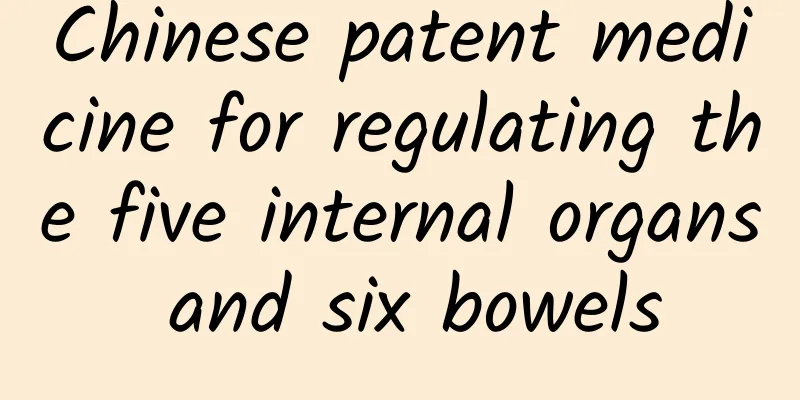Chinese patent medicine for regulating the five internal organs and six bowels

|
The Chinese medicine prescriptions for regulating the five internal organs should be based on the differences of each internal organ, and the dosage of the medicine should also be different. For lung deficiency, use Bufei Pills; for lung yin deficiency, use Baihe Gujin Pills or Yangyin Qingfei Pills; for heart blood deficiency, use Guipi Pills or Renshen Yangrong Pills; for heart yin deficiency, use Tianwang Buxin Dan; for spleen qi deficiency, use Renshen Jianpi Pills; for spleen yang deficiency, use Fuzi Lizhong Pills; for liver depression and qi stagnation, use Chaihu Shugan Pills; for liver fire ascending, use Longdan Xiegan Pills; for kidney qi deficiency, use Jinkui Shenqi Pills; for liver and kidney yin deficiency, use Zuogui Pills or Liuwei Dihuang Pills; for yin deficiency and excessive fire, use Yougui Pills or Guifu Dihuang Pills. The five internal organs mainly include the heart, liver, spleen, lungs and kidneys. There are many traditional Chinese medicines for treating disorders of the five internal organs, and actual treatment can be selected based on clinical manifestations. For example, if the lungs and stomach are deficient, you can choose Scutellaria baicalensis, Codonopsis pilosula, and Panax ginseng; if the heart and blood are deficient, you can choose Chuanxiong, Rehmannia glutinosa, Notopterygium wilfordii, and Paeonia lactiflora; if the yin is deficient and the fire is excessive, you can take wolfberry, Cuscuta chinensis, Morinda officinalis, and Sheep Fire Leaf internally; if the liver and kidney are deficient in yin, you can take Rehmannia glutinosa, Cortex Moutan, Alisma orientalis, and Tortoise shell internally. For spleen yang deficiency, you can take Lu Te Ke, Pao Jiang, etc. internally. In short, the names of Chinese medicinal materials that regulate the five internal organs are rather vague and cannot be listed one by one. There are many Chinese medicinal herbs that can regulate the five internal organs. Almost all of them can regulate the five internal organs of the body according to their own properties. The very common ones in clinical medicine include lily, adenophora, wild ginseng, codonopsis, cinnamon twig, as well as Lute Technology, all of which are suitable. It mainly depends on the specific guidance of the doctor, effectively treat the diseases of the five internal organs, use relevant Chinese medicinal materials to regulate, and commonly use Chinese medicine prescriptions to adjust the five internal organs. For example, for the heart, you can choose Tianwang Buxin Dan and Zhusha Anshen Wan; for the liver, you can choose Renshen Jianpi Wan and Shenling Baizhu San; for the kidney function, you can choose Zhibai Dihuang Wan and Jinkui Shenqi Wan; for the lungs, you can choose Baihe Gujin Dan and others; for the liver, you can choose Chaihu Shugan San and others. |
<<: The efficacy and function of fresh Ganoderma lucidum and how to eat it
Recommend
Can Imperata Root Cure Kidney Disease?
Kidney disease is often accompanied by urinary sy...
Are there really benefits to getting married and having children early?
Source: Youlai Healthy Life...
The efficacy and function of bee medicine
Recently, major TV channels have launched various...
What are the characteristics of snow lotus
The image of snow lotus has long been deeply root...
Cambridge's cool new invention: Roll up a piece of cloth and it becomes a display screen!
Written by: Wu Tingting Editor: Kou Jianchao One ...
The efficacy and function of eggplant
Eggplant is a familiar medicinal material with un...
Just now, the 2022 Nobel Prize in Chemistry was announced. They won the award for click chemistry and bioorthogonal chemistry
At 5:45 pm Beijing time on October 5, 2022, the 2...
State Post Bureau: The total volume of global express parcel business in 2022 will be about 189.2 billion pieces, a year-on-year increase of about 9.84%
The State Post Bureau released the Global Express...
The efficacy and function of double-winged grass
Chinese medicinal materials are very effective in...
Where to go next: Insights on Chinese millennial travelers
There are significant differences in behavior and...
The disappearance of "it"! If your presbyopia suddenly disappears, it may not be a good thing
Everyone is familiar with "presbyopia",...
Mountain floods in Datong County, Qinghai Province triggered mudslides. Why is the “last mile” forecast and rescue still a problem?
Heavy rainfall in Datong County, Qinghai Province...
A baby saber-toothed tiger from 30,000 years ago was discovered! It still had whiskers and claws
Produced by: Science Popularization China Author:...
Survival after the explosion of Apollo 13
On April 11, 1970, astronauts Haise, Lovell, and ...
The efficacy and function of ramie leaves
The functions and effects of ramie leaves are gen...









